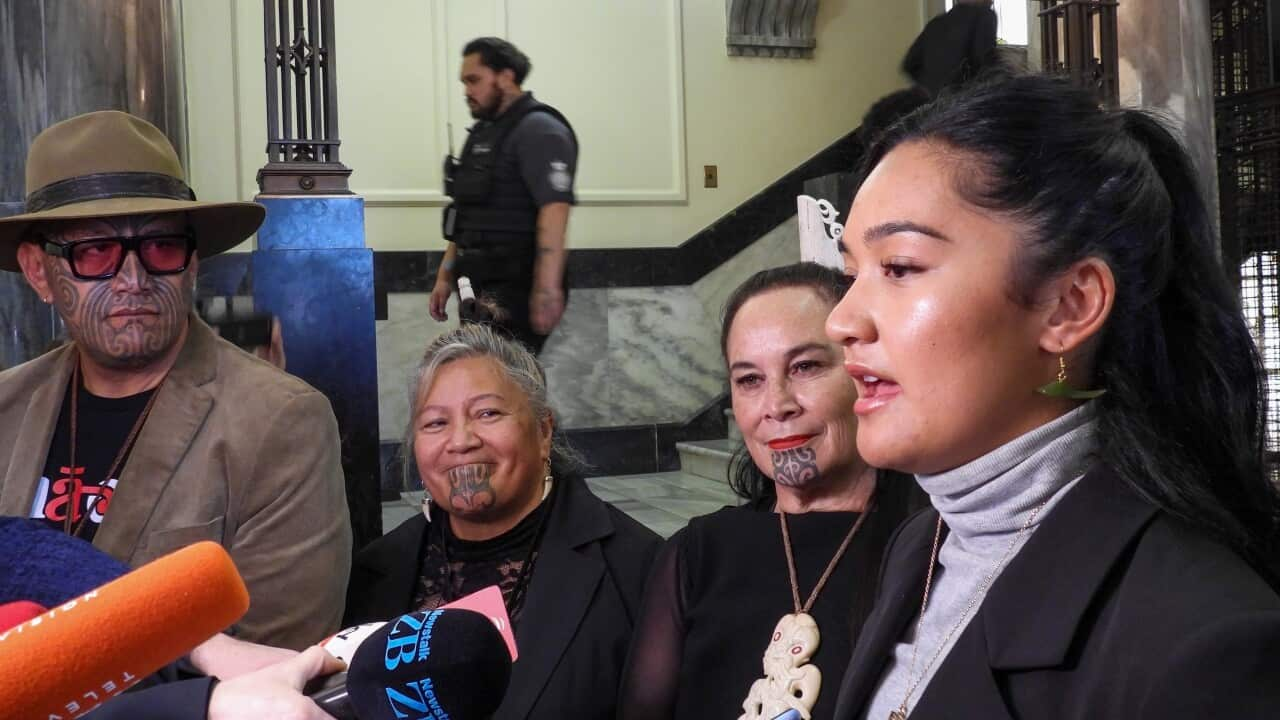Key Points
- Three Māori Party MPs in New Zealand face unprecedented parliamentary suspensions for performing a haka protest.
- The protest was in response to an attempt to strip rights given to Māori at New Zealand’s foundation.
- The Māori Party condemned the suspensions, calling them unjust and racially discriminatory.
The New Zealand MPs who protested constitutional reforms with a haka on the floor of parliament will receive suspensions believed to be the most severe ever issued in the institution’s 170-year history.
Last November, 22-year-old Hana-Rawhiti Maipi-Clarke became a global viral sensation with her animated dismissal of the Treaty Principles Bill, ripping it up and performing the war dance with her Māori Party co-leaders.
The Treaty Principles Bill was a failed attempt by the right-wing ACT Party to redefine the Treaty of Waitangi in law that would have stripped rights given to Māori at New Zealand’s foundation.
The Māori Party’s cultural protest inside parliament was sent to the privileges committee, which resolved to suspend Maipi-Clarke for a week, and Rawiri Waititi and Debbie Ngarewa-Packer, for three weeks each.
Judith Collins, the attorney-general and committee chair, said it was the toughest punishment it had ever handed out and “the worst incident that we have ever seen”.
“Make no mistake. This was a very serious incident, the likes of which I have never seen before in my 23 years in the debating chamber,” she said.
The haka, which has gained worldwide admiration as the preceding act to All Blacks rugby Tests, is not banned in parliament but requires permission from the speaker to perform, and must not disrupt proceedings.
Collins said the MPs deliberately intimidated the ACT Party MPs who championed the reforms, as they prepared to vote.
“This was a very sad day for parliament,” she said.
Bans ‘grossly unjust’, Māori Party says
The Māori Party have condemned the bans as “grossly unjust, unfair, and unwarranted” and, in a dissenting position within the report, as “reinforcing institutional racism”.
“The finding that our actions constituted ‘intimidation’ sets a dangerous precedent for Aotearoa. It frames Māori protest, haka, and the assertion of (Māori sovereignty) rangatiratanga as inherently threatening,” it wrote.
The left-wing indigenous rights party said the decision meant it was inappropriate for the government to utilise haka, as often occurs, on international delegations.
The punishments are likely to be rubber-stamped by the parliament next Tuesday and voted through by the three government parties – National, ACT and NZ First.
The three Māori Party MPs have been unrepentant, declining several opportunities to appear before the committee.
During their bans, which will include the 22 May budget, their votes will not counted in parliament and they will not receive their salary.
For the latest from SBS News, and .
